Mastering 2nd grade spelling words is a crucial step in building foundational literacy skills. These words introduce phonics patterns, sight words, and basic vocabulary, fostering confidence in young learners.
Importance of Spelling in Early Education
Mastering spelling in early education is essential for developing strong literacy skills. It enhances reading fluency, writing accuracy, and vocabulary expansion. Spelling helps students recognize patterns in language, improving overall comprehension. High-frequency words, often introduced in 2nd grade, build a foundation for confident communication. Proper spelling fosters clarity in expression and aids in understanding complex texts. Early spelling skills also promote better study habits and a growth mindset. By focusing on phonics and word structures, students develop a lifelong ability to decode and encode words, which is crucial for academic success and effective communication in all areas of life.
Structure of 2nd Grade Spelling Curriculum
The 2nd grade spelling curriculum is designed to gradually build skills through structured weekly lists and thematic units. It begins with basic phonics, introducing short and long vowel sounds, consonant blends, and common vowel teams like ai, ay, ee, and ea. High-frequency sight words are integrated to enhance recognition and fluency. Themed lists, such as animals or family, engage students while reinforcing vocabulary. The curriculum progresses to more complex patterns, preparing students for independent reading and writing. Regular assessments and interactive activities ensure mastery, with resources like PDFs offering practice worksheets and spelling bee challenges to cater to diverse learning styles and keep students motivated throughout the year.
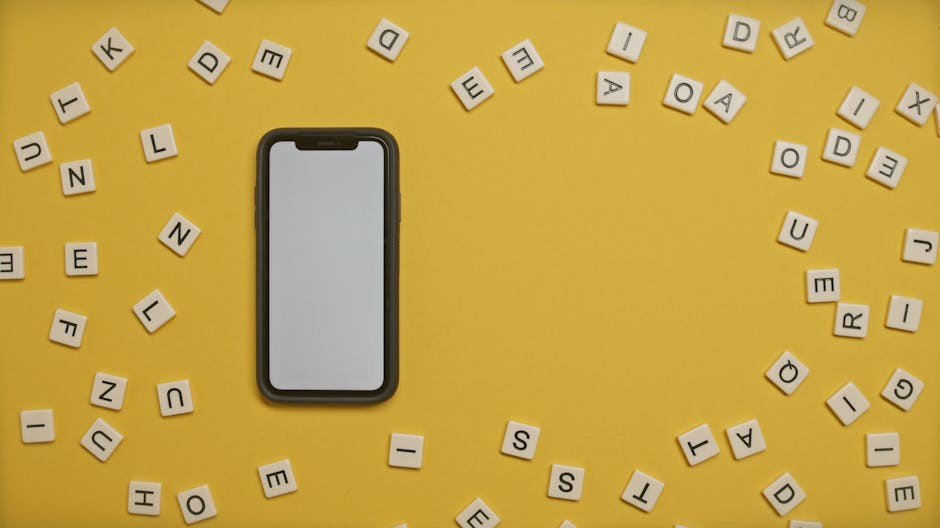
High-Frequency Spelling Words for 2nd Grade
High-frequency spelling words are common, often-used terms like the, of, when, time, help, back, much, and along. Mastering these boosts reading and writing fluency and confidence.
Common Sight Words in 2nd Grade
Sight words are high-frequency words that often don’t follow phonetic rules, making them essential to recognize by sight. Examples include the, of, when, time, help, back, much, along, city, play, toward, five, himself, usually, money, seen, didn’t, car, and others. These words appear frequently in reading materials, so mastering them enhances fluency. Sight words are often included in 2nd grade spelling words PDF resources and curriculum lists. They are typically introduced gradually, with sets of 20- per learning phase. Understanding and memorizing these words helps students read more effortlessly and confidently, laying a strong foundation for advanced literacy skills. Regular practice through worksheets and interactive games ensures long-term retention and proficiency.
High-Frequency Words List
High-frequency words are those that appear most commonly in written texts, making them vital for early readers to master. Examples include the, of, when, time, help, back, much, along, city, play, toward, five, himself, usually, money, seen, didn’t, car, and others. These words are often grouped into lists based on their frequency and difficulty, ensuring students can recognize and spell them effortlessly. Many 2nd grade spelling words PDF resources organize these lists for easy practice. Regular exposure to these words enhances reading fluency and comprehension. By mastering high-frequency words, students build a strong vocabulary foundation, which is essential for progressing in their literacy journey. These lists are often curated to align with curriculum standards and learning objectives.
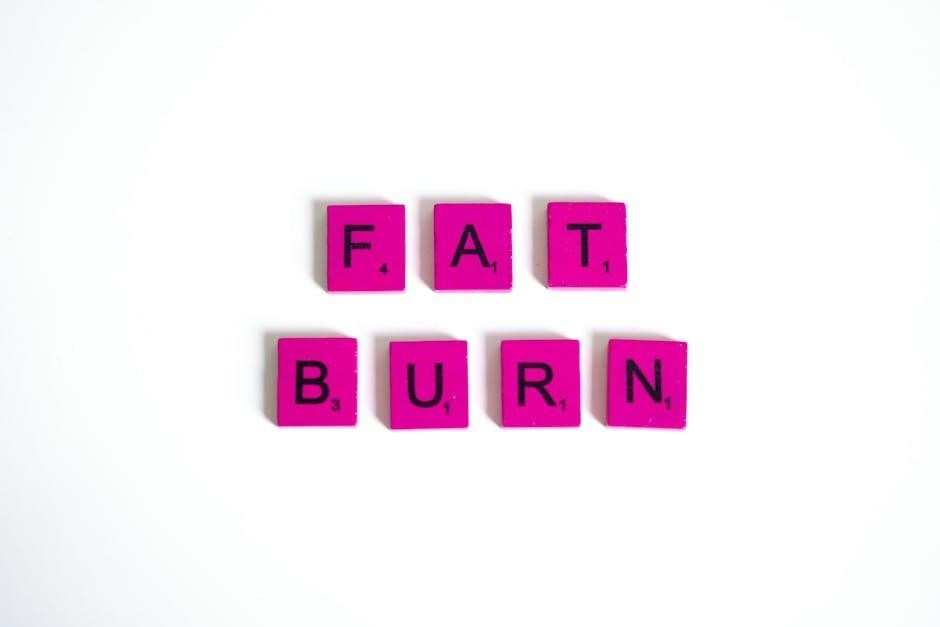
Basic Spelling Rules for 2nd Graders
Understanding basic spelling rules helps students decode and spell words confidently. These rules include patterns like double consonants, silent letters, and vowel teams, enhancing their literacy skills effectively.
Long and Short Vowel Sounds
Mastering long and short vowel sounds is essential for 2nd graders. Long vowels sound like the letter’s name, while short vowels produce a distinct, clipped sound. For example, in “cake,” the “a” is long, whereas in “cat,” it’s short. Recognizing these patterns helps students read and spell words accurately. Activities like word sorting and phonics games make learning engaging. Printable PDF worksheets often include exercises that highlight these sounds, making practice both fun and effective. Understanding vowel sounds builds a strong foundation for more complex spelling and reading skills in later grades.
Common Vowel Teams (ai, ay, ee, ea)
Second graders learn common vowel teams, which are groups of letters that work together to make a single sound. The “ai” and “ay” teams produce a long “a” sound, as in “rain” and “play.” The “ee” team makes a long “e” sound, heard in words like “see” and “tree.” The “ea” team can make both long (“sea”) and short (“head”) sounds. These patterns help students decode unfamiliar words and spell them correctly. High-frequency words like “great” and “meat” reinforce these vowel teams. Themed lists and interactive games in PDF resources make learning engaging. Mastering these teams builds phonics skills and confidence in reading and spelling.
Consonant Sounds and Blends
Second graders learn to recognize and spell words with consonant sounds and blends, which are essential for reading and writing. Consonant sounds involve single letters like “m” in “maps” or “h” in “ham.” Blends, such as “bl” in “black” or “tr” in “train,” combine two consonants to make a single sound. These skills help students decode words like “dig” and “fix,” commonly found in spelling lists. Teaching strategies include using interactive games and multi-sensory approaches to practice these sounds. Printable PDF worksheets often feature exercises that focus on consonant sounds and blends, making practice fun and engaging. Mastering these concepts enhances spelling accuracy and builds confidence in early literacy skills.
Weekly Spelling Lists for 2nd Grade
Weekly spelling lists for 2nd graders are organized by units and weeks, focusing on phonics patterns and high-frequency words like “maps,” “ham,” and “dig.” These lists help students progress gradually, building confidence and mastery over time.
Unit 1, Week 1 Spelling Words
Unit 1, Week 1 focuses on basic phonics and sight words. Students learn words like maps, ham, dig, fix, by, and day. These words introduce simple vowel sounds and consonant blends, laying the groundwork for more complex spellings. Interactive activities and games are often used to engage young learners, making the process enjoyable and effective. Printable PDFs are a popular resource, offering worksheets and exercises tailored to this unit. Regular practice with these words helps build a strong foundation for future spelling success.
Unit 3, Week 1 Spelling Words
Unit 3, Week 1 spelling words focus on expanding phonics skills with words such as cube, cute, few, fuel, huge, and menu. These words introduce vowel patterns like “ue” and “u” sounds, helping students recognize common letter combinations. Activities often include word building and sorting games to reinforce learning. PDF resources provide practice worksheets and interactive exercises, making it easy for students to master these words. By practicing these spellings, students improve their decoding and encoding abilities, essential for reading and writing fluency. These words also connect to real-world themes, making learning engaging and meaningful for young learners.
Unit 9, Week 1 Spelling Words
Unit 9, Week 1 introduces spelling words like cloud, found, round, mound, sound, ground, pound, hound, mountain, and fountain. These words focus on the ‘ound’ sound, helping students recognize and spell vowel teams. PDF resources offer interactive exercises, such as crossword puzzles and word searches, to engage young learners. Activities like matching games and writing sentences with these words enhance retention. By mastering these spellings, students improve their ability to decode and encode more complex words, building a strong foundation for future reading and writing skills. These exercises also connect spelling to real-world contexts, making learning both fun and meaningful.

Themed Spelling Lists
Themed spelling lists engage students with fun topics like animals, family, and school, making learning exciting and relatable. PDF resources offer organized lists and activities.
Animals and Nature-Themed Words
Animals and nature-themed spelling lists are engaging for 2nd graders, offering words like fox, bird, tree, and fish. These lists are available in PDF formats, providing fun, interactive activities.
Family and Friends-Themed Words
Family and friends-themed spelling lists for 2nd graders include relatable words like mom, dad, brother, sister, friend, family, mother, father, grandma, grandpa, aunt, uncle, cousin, baby, boy, girl, teacher, student, and more. These words are often high-frequency and appear in daily conversations, making them practical for young learners. Spelling activities in PDF formats frequently incorporate these themes, offering interactive exercises like matching games and word searches; Such lists help students connect spelling to their personal lives, fostering engagement and confidence. They also introduce basic phonics patterns, such as short vowels in mom and dad, and blending sounds in brother and sister. These resources are invaluable for teachers and parents aiming to make spelling fun and meaningful.
School and Learning-Themed Words
‘; The topic is ‘2nd grade spelling words pdf’, and they have provided some guidelines.
Looking at the history, I see they previously generated content for family and friends-themed words. I should make sure not to repeat any similar structure or content. The user provided some example words and themes, so I can draw from those.
I need to think about common school-related words that fit the 2nd-grade level. Words like ‘school’, ‘class’, ‘teacher’, ‘student’, ‘pencil’, ‘book’, ‘desk’, ‘read’, ‘write’, ‘learn’, ‘study’, ‘quiz’, ‘test’, ‘homework’, ‘lesson’, ‘subject’, ‘grade’, ‘classroom’, ‘activity’, ‘project’, ‘report’, ‘presentation’, ‘science’, ‘math’, ‘reading’, ‘library’, ‘computer’, ‘whiteboard’, ‘chalk’, ‘marker’, ‘notebook’, ‘folder’, ‘Binder’, ‘schedule’, ‘timetable’, ‘bell’, ‘recess’, ‘lunch’, ‘playground’, ‘assembly’, ‘field trip’, ‘workshop’, ‘seminar’, ‘lecture’, ‘assignment’, ‘exercise’, ‘worksheet’, ‘quiz’, ‘exam’, ‘grade’, ‘certificate’, ‘award’, ‘achievement’, ‘progress’, ‘improvement’, ‘practice’, ‘revision’, ‘assessment’, ‘evaluation’, ‘feedback’, ‘discussion’, ‘debate’, ‘seminar’, ‘tutorial’, ‘lecture’, ‘thesis’, ‘dissertation’, ‘essay’, ‘report’, ‘article’, ‘project’, ‘presentation’, ‘assignment’, ‘task’, ‘activity’, ‘exercise’, ‘worksheet’, ‘quiz’, ‘test’, ‘exam’, ‘grade’, ‘mark’, ‘score’, ‘credit’, ‘degree’, ‘qualification’, ‘certification’, ‘accreditation’, ‘course’, ‘module’, ‘unit’, ‘lesson’, ‘class’, ‘tutorial’, ‘seminar’, ‘workshop’, ‘conference’, ‘symposium’, ‘lecture’, ‘talk’, ‘presentation’, ‘speech’, ‘debate’, ‘discussion’, ‘forum’, ‘meeting’, ‘gathering’, ‘event’, ‘function’, ‘ceremony’, ‘ritual’, ‘tradition’, ‘celebration’, ‘party’, ‘gala’, ‘banquet’, ‘reception’, ‘assembly’, ‘convention’, ‘exhibition’, ‘expo’, ‘fair’, ‘festival’, ‘parade’, ‘procession’, ‘demonstration’, ‘protest’, ‘rally’, ‘campaign’, ‘movement’, ‘initiative’, ‘drive’, ‘effort’, ‘attempt’, ‘try’, ‘endeavor’, ‘struggle’, ‘challenge’, ‘obstacle’, ‘difficulty’, ‘problem’, ‘issue’, ‘concern’, ‘challenge’, ‘task’, ‘assignment’, ‘job’, ‘duty’, ‘responsibility’, ‘role’, ‘function’, ‘operation’, ‘process’, ‘system’, ‘method’, ‘approach’, ‘strategy’, ‘plan’, ‘scheme’, ‘tactic’, ‘technique’, ‘skill’, ‘ability’, ‘competency’, ‘proficiency’, ‘mastery’, ‘expertise’, ‘knowledge’, ‘understanding’, ‘awareness’, ‘consciousness’, ‘perception’, ‘insight’, ‘intuition’, ‘instinct’, ‘feeling’, ’emotion’, ‘sensation’, ‘experience’, ‘encounter’, ‘event’, ‘happening’, ‘occurrence’, ‘incident’, ‘case’, ‘situation’, ‘circumstance’, ‘condition’, ‘context’, ‘background’, ‘environment’, ‘setting’, ‘scene’, ‘locale’, ‘location’, ‘place’, ‘area’, ‘region’, ‘territory’, ‘zone’, ‘sector’, ‘district’, ‘neighborhood’, ‘community’, ‘society’, ‘culture’, ‘tradition’, ‘heritage’, ‘history’, ‘past’, ‘present’, ‘future’, ‘time’, ‘era’, ‘age’, ‘period’, ‘phase’, ‘stage’, ‘cycle’, ‘process’, ‘development’, ‘growth’, ‘progress’, ‘improvement’, ‘advance’, ‘evolution’, ‘transformation’, ‘change’, ‘innovation’, ‘creation’, ‘invention’, ‘discovery’, ‘exploration’, ‘investigation’, ‘research’, ‘analysis’, ‘study’, ‘examination’, ‘evaluation’, ‘assessment’, ‘appraisal’, ‘review’, ‘inspection’, ‘survey’, ‘observation’, ‘perception’, ‘interpretation’, ‘understanding’, ‘comprehension’, ‘grasp’, ‘apprehension’, ‘recognition’, ‘acknowledgment’, ‘awareness’, ‘consciousness’, ‘mindfulness’, ‘attention’, ‘focus’, ‘concentration’, ‘absorption’, ‘immersion’, ‘engagement’, ‘participation’, ‘involvement’, ‘contribution’, ‘sharing’, ‘collaboration’, ‘cooperation’, ‘coordination’, ‘communication’, ‘interaction’, ‘connection’, ‘link’, ‘tie’, ‘bond’, ‘relation’, ‘relationship’, ‘association’, ‘affiliation’, ‘alliance’, ‘partnership’, ‘network’, ‘community’, ‘society’, ‘group’, ‘team’, ‘crew’, ‘staff’, ‘faculty’, ‘administration’, ‘management’, ‘leadership’, ‘guidance’, ‘direction’, ‘supervision’, ‘oversight’, ‘monitoring’, ‘regulation’, ‘control’, ‘governance’, ‘rule’, ‘law’, ‘policy’, ‘procedure’, ‘protocol’, ‘guideline’, ‘standard’, ‘criterion’, ‘benchmark’, ‘measure’, ‘metric’, ‘indicator’, ‘index’, ‘scale’, ‘ranking’, ‘evaluation’, ‘assessment’, ‘appraisal’, ‘review’, ‘inspection’, ‘analysis’, ‘examination’, ‘study’, ‘research’, ‘investigation’, ‘inquiry’, ‘probe’, ‘exploration’, ‘discovery’, ‘learning’, ‘education’, ‘knowledge’, ‘understanding’, ‘skill’, ‘competency’, ‘ability’, ‘capability’, ‘capacity’, ‘potential’, ‘talent’, ‘gift’, ‘aptitude’, ‘inclination’, ‘interest’, ‘passion’, ‘enthusiasm’, ‘dedication’, ‘commitment’, ‘devotion’, ‘loyalty’, ‘allegiance’, ‘obligation’, ‘duty’, ‘responsibility’, ‘accountability’, ‘answerability’, ‘liability’, ‘vulnerability’, ‘susceptibility’, ‘risk’, ‘hazard’, ‘danger’, ‘threat’, ‘menace’, ‘peril’, ‘jeopardy’, ‘problem’, ‘issue’, ‘concern’, ‘challenge’, ‘obstacle’, ‘difficulty’, ‘hardship’, ‘adversity’, ‘struggle’, ‘effort’, ‘attempt’, ‘try’, ‘endeavor’, ‘strive’, ‘pursuit’, ‘quest’, ‘mission’, ‘goal’, ‘objective’, ‘aim’, ‘target’, ‘purpose’, ‘intent’, ‘intention’, ‘plan’, ‘scheme’, ‘strategy’, ‘tactic’, ‘method’, ‘approach’, ‘way’, ‘manner’, ‘style’, ‘technique’, ‘skill’, ‘craft’, ‘art’, ‘science’, ‘technology’, ‘engineering’, ‘mathematics’, ‘stem’, ‘discipline’, ‘field’, ‘subject’, ‘topic’, ‘theme’, ‘issue’, ‘matter’, ‘affair’, ‘business’, ‘concern’, ‘interest’, ‘importance’, ‘significance’, ‘value’, ‘worth’, ‘merit’, ‘excellence’, ‘quality’, ‘standard’, ‘grade’, ‘level’, ‘rank’, ‘position’, ‘status’, ‘role’, ‘function’, ‘operation’, ‘process’, ‘system’, ‘structure’, ‘organization’, ‘arrangement’, ‘layout’, ‘design’, ‘plan’, ‘scheme’, ‘blueprint’, ‘model’, ‘template’, ‘example’, ‘sample’, ‘illustration’, ‘demonstration’, ‘exhibition’, ‘display’, ‘presentation’, ‘showcase’, ‘portfolio’, ‘collection’, ‘compilation’, ‘assemblage’, ‘gathering’, ‘meeting’, ‘conference’, ‘seminar’, ‘workshop’, ‘symposium’, ‘lecture’, ‘talk’, ‘discussion’, ‘debate’, ‘forum’, ‘dialogue’, ‘conversation’, ‘chat’, ‘interaction’, ‘communication’, ‘exchange’, ‘sharing’, ‘collaboration’, ‘cooperation’, ‘coordination’, ‘partnership’, ‘alliance’, ‘network’, ‘connection’, ‘link’, ‘tie’, ‘bond’, ‘relationship’, ‘association’, ‘affiliation’, ‘membership’, ‘participation’, ‘involvement’, ‘engagement’, ‘commitment’, ‘dedication’, ‘devotion’, ‘loyalty’, ‘obligation’, ‘duty’, ‘responsibility’, ‘accountability’, ‘answerability’, ‘liability’, ‘vulnerability’, ‘susceptibility’, ‘risk’, ‘hazard’, ‘danger’, ‘threat’, ‘menace’, ‘peril’, ‘jeopardy’, ‘problem’, ‘issue’, ‘concern’, ‘challenge’, ‘obstacle’, ‘difficulty’, ‘hardship’, ‘adversity’, ‘struggle’, ‘effort’, ‘attempt’, ‘try’, ‘endeavor’, ‘strive’, ‘pursuit’, ‘quest’, ‘mission’, ‘goal’, ‘objective’, ‘aim’, ‘target’, ‘purpose’, ‘intent’, ‘
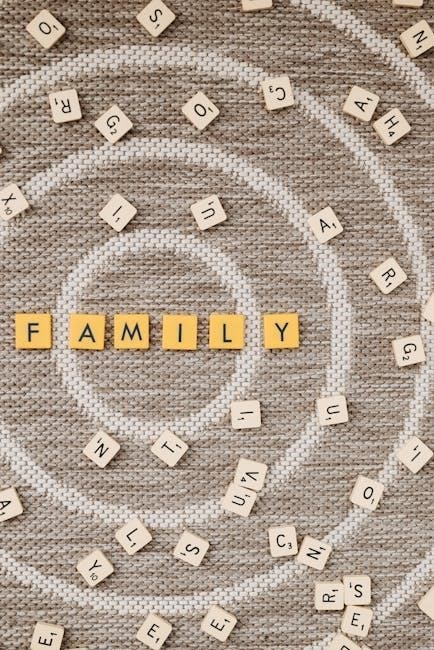
Spelling Bee Words for 2nd Grade
Spelling bee words for 2nd graders include able, raise, twig, mine, forty, age, reindeer, upset, month, fox, fancy, roar, voice, music, garden, felt, rooster, wash, and never.
Easy Spelling Bee Words
Easy spelling bee words for 2nd graders include able, fox, music, garden, wash, and never. These words are simple, familiar, and perfect for building confidence. They often feature common phonics patterns like short vowels and basic consonant blends.
Challenge Spelling Bee Words
Challenge spelling bee words for 2nd graders include raise, reindeer, fancy, and roar. These words are slightly more complex, introducing longer syllables and less common patterns. They help students expand their spelling skills and vocabulary. Words like reindeer and fancy involve double letters and vowel combinations, while roar and raise focus on distinct vowel sounds. These words are ideal for advanced learners or those preparing for competitions. They can be found in 2nd grade spelling word PDFs, often grouped by difficulty to cater to different learning levels. Practicing these words enhances phonics understanding and builds confidence in tackling more challenging spellings.
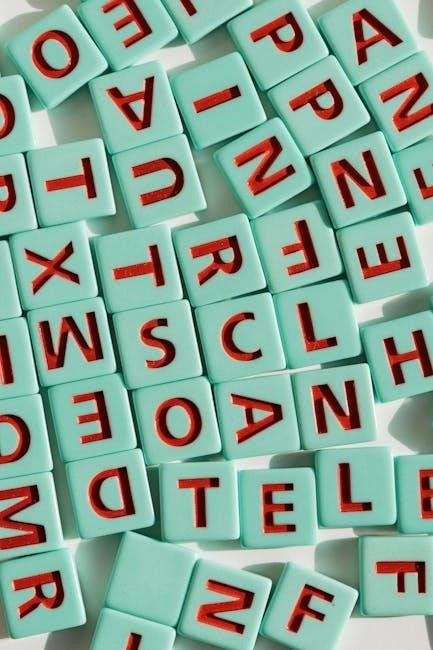
Teaching Strategies for Spelling Success
Effective teaching strategies for spelling success include interactive games and multi-sensory approaches, engaging students and reinforcing learning in a fun and comprehensive manner.
Interactive Games for Spelling Practice
Interactive games make spelling practice engaging and effective for 2nd graders. Activities like spelling bingo, word scrambles, and memory matching games help students learn high-frequency words in a fun way. Themed games, such as animal-themed word hunts or family-themed crossword puzzles, connect spelling to relatable topics. Digital tools, like spelling apps and online flashcards, provide interactive practice anywhere. Incorporating group challenges and individual competitions fosters healthy competition and teamwork. These games not only improve spelling skills but also build confidence and make learning enjoyable for young students.
Multi-Sensory Approaches to Spelling
Multi-sensory approaches to spelling engage students’ senses, making learning more effective and enjoyable. Techniques like tracing words in sand or shaving cream activate the tactile sense, while air writing with fingers incorporates movement. Sound-based methods, such as clapping syllables or tapping phonemes, enhance auditory learning. Visual strategies, like using colored flashcards or rainbow writing, help students remember patterns. Incorporating scents or textures adds another layer of engagement. These methods cater to different learning styles, ensuring all students can grasp spelling concepts confidently and retain them long-term.
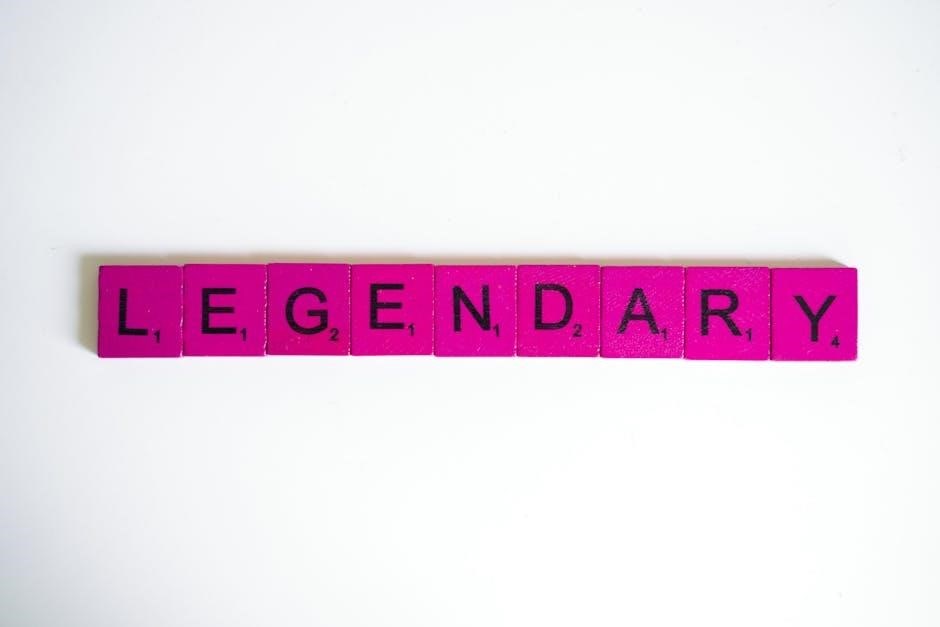
Using PDF Resources for Spelling Practice
Premium PDF resources offer organized, printable spelling lists and activities. They include word searches, tracing exercises, and interactive games, making learning engaging and accessible for 2nd graders.
- Interactive games and puzzles
- Printable flashcards and worksheets
- Customizable practice templates
Benefits of Printable Spelling Worksheets
Printable spelling worksheets are an excellent tool for 2nd graders, offering structured practice and reinforcement of spelling skills. They provide a variety of engaging activities, such as word searches, crossword puzzles, and tracing exercises, which cater to different learning styles. These worksheets are customizable, allowing teachers and parents to tailor content to specific needs. Regular use of these resources helps build confidence and fluency in spelling. Additionally, printable worksheets are convenient for homework or classroom use, ensuring consistent practice. They also offer a tactile learning experience, which is particularly beneficial for young students. By incorporating these tools, educators can create a fun and effective learning environment that supports long-term spelling mastery.
How to Create a 2nd Grade Spelling Words PDF
Creating a 2nd grade spelling words PDF is a straightforward process that can be tailored to meet specific educational needs. Start by selecting a list of age-appropriate words, such as high-frequency sight words or themed vocabulary. Use a word processor or design tool to organize the words into engaging layouts, incorporating visuals and activities like fill-in-the-blanks or matching games. Consider adding images or illustrations to make the content more appealing to young learners. Once the content is ready, save the document as a PDF to ensure it is easily shareable and accessible. Teachers and parents can then distribute the PDF for practice at home or in the classroom, providing a consistent and interactive learning resource. This method ensures that spelling practice is both effective and enjoyable for 2nd graders.
Assessment and Progress Tracking
Regular spelling tests and quizzes help monitor progress. Use PDF worksheets to track accuracy and improvement over time, ensuring students master each word list effectively.
Weekly Spelling Tests
Weekly spelling tests are essential for assessing progress and reinforcing memory. They typically include reading words aloud, writing sentences, and identifying correct spellings. Teachers use PDF worksheets to create structured tests, often incorporating words from high-frequency lists and themed units. These tests help identify areas where students may need extra practice. Parents can also use printable tests at home to support learning. By consistently administering these assessments, educators ensure students build confidence and proficiency in spelling throughout the year.
Monitoring Student Progress
Monitoring student progress in spelling is vital to ensure mastery of 2nd grade spelling words. Teachers often use quizzes, worksheets, and tests to track improvement. Printable PDF resources provide structured tools for consistent assessment. By reviewing results, educators can identify areas where students need extra practice. Progress is typically measured through accuracy in spelling tests, ability to apply words in sentences, and recognition of high-frequency words. Digital tools and apps also offer real-time tracking options. Parents can support by reviewing progress reports and reinforcing practice at home. Regular monitoring helps tailor instruction to meet individual needs, ensuring steady growth throughout the year.
Mastery of 2nd grade spelling words builds confidence in reading and writing, fostering a lifelong love for learning and laying the foundation for future academic success.
Long-Term Benefits of Mastering Spelling Skills
Mastery of 2nd grade spelling words fosters strong literacy skills, enhancing reading fluency and writing confidence. It builds a foundation for advanced vocabulary and comprehension, benefiting students throughout their education. Spelling proficiency improves communication, boosts academic performance, and supports future learning in all subjects. By solidifying these skills early, students develop better study habits and critical thinking abilities. This foundation also aids in understanding more complex phonics patterns and word structures, which are essential for higher-grade materials. Ultimately, mastering spelling at this stage creates a lifelong advantage, promoting academic success and a deeper appreciation for language and learning.
Encouraging a Love for Learning
Mastering 2nd grade spelling words can spark a lifelong love for learning by making language exploration fun and engaging. Interactive games, creative writing, and hands-on activities help students connect with words on a deeper level. Positive reinforcement and celebrating progress build confidence, encouraging children to embrace challenges. When learning is enjoyable, students develop curiosity and a desire to explore new concepts. This foundation fosters a growth mindset, where learning becomes an adventure rather than a task. By incorporating meaningful and interactive strategies, educators and parents can nurture a love for learning that extends beyond spelling to all areas of education.
